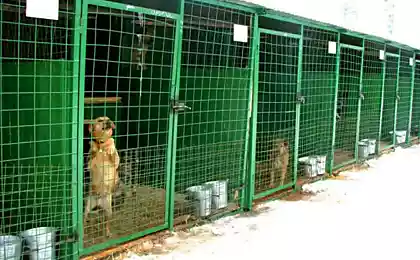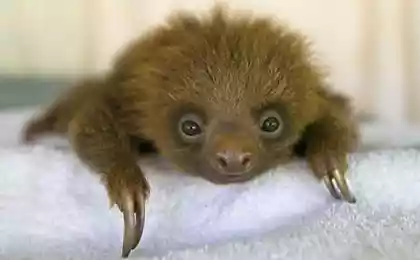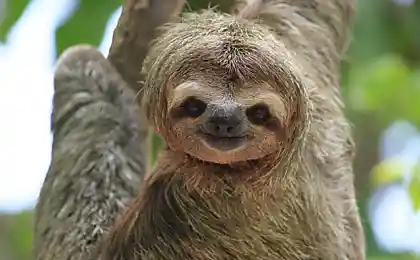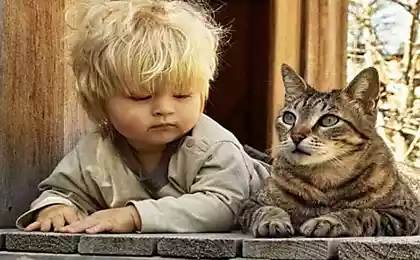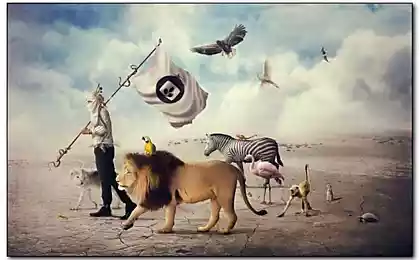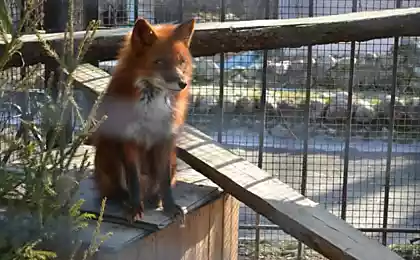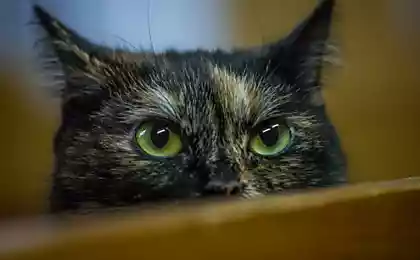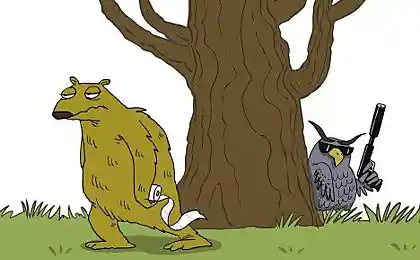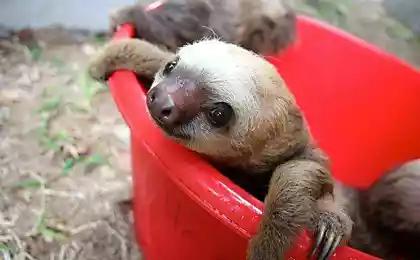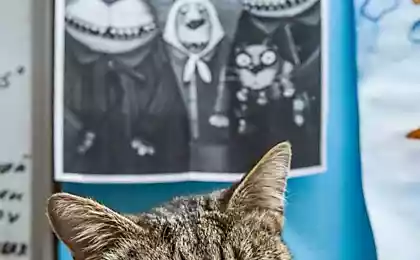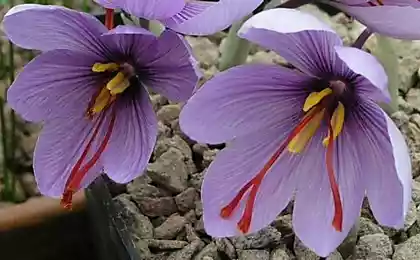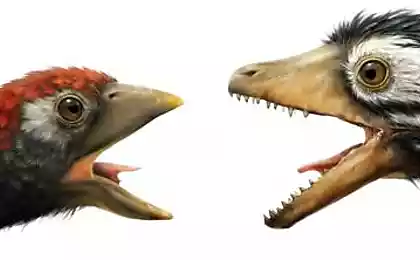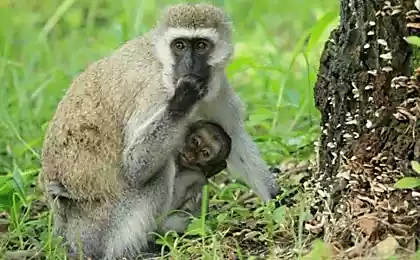658
In the animal world - slothful (10 photos)
Sloths (Bradypodidae) - a family of mammals of the order edentates.
The body length of 50-64 cm and weigh 4-7 kg. The front legs are longer than the back. On the fingers (of 2-3) strong sickle claws. The neck is very mobile, allowing rotation of the head even at 270 °. Zubov 18. Unlike other mammals, sloths have cervical vertebrae 6-9 and 14-24 pairs of ribs. Wool long grayish-brown in color, often with a greenish tint due to developing it vodorosley.Iz senses are well developed sight and smell worse than a rumor.
Sloths feed almost exclusively on arboreal leaves, although they may occasionally eat insects and small lizards. Leaves are difficult to digest and have a very low calorie content and nutritional value. For digestion leaves sloths use symbiotic bacteria living in their gut. Digestion takes about a month. In well-fed sloth 2/3 of body weight can occur in the food in the stomach.
Sloths are so slow that their wool often live butterfly ognёvka. In addition, the coat of many species of sloths live blue-green algae (bacteria capable of photosynthesis), giving sloths a greenish color that makes them invisible, and are an additional source of food.
Sloths can withstand a fall from a great height and severe injuries. Small lenivchiki not cling to trees, and for the mother's hair. Sometimes they fall, and at the same time can be lost, because his mother could not climb down over its cub.
The slothful man can neither defend themselves or escape from a predator. Nevertheless, sloths are very numerous, thanks to color and slow movements, making them virtually invisible. In some areas, sloths make up 2/3 of the biomass of mammals. Only one species of the five sloth collared, declared endangered.
Sloths are found in Central and South America. In the past they were carried out in North America, but were almost immediately destroyed after the arrival of humans.
Ancestors were megatherium sloths, huge animal the size of an elephant or a bull, eat like modern sloths, the leaves of trees. Megatherium extinct 10-12 thousand. Years ago and were contemporaries of primitive people. Moreover, at least one kind of giant sloth used is probably as domestic animal meat.
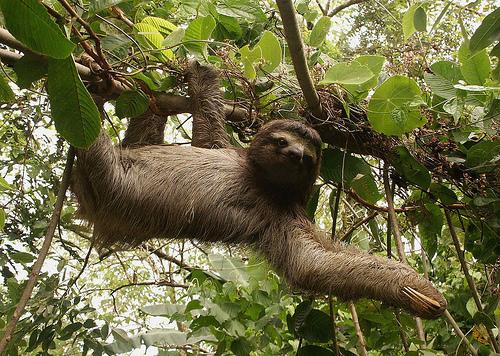
...
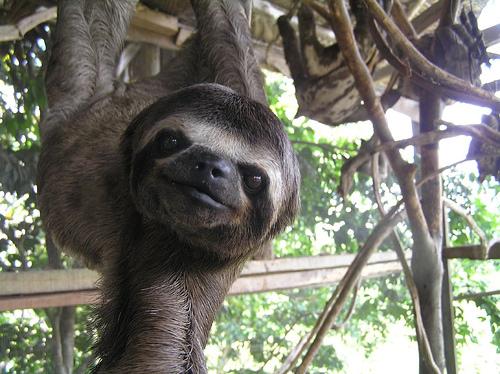
...
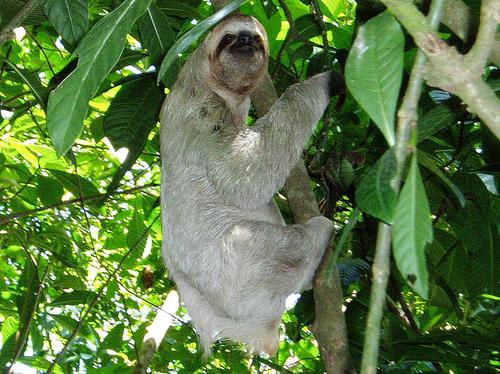
...
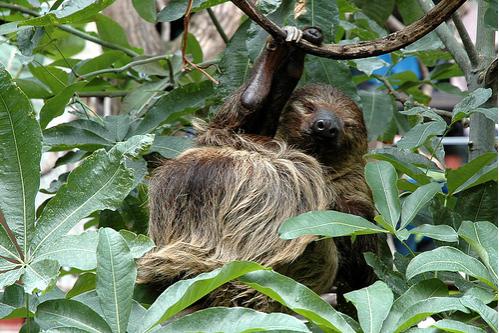
...
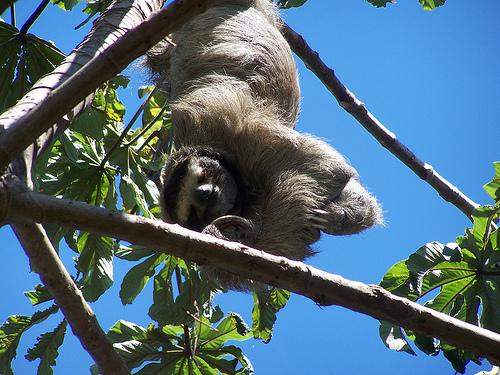
...
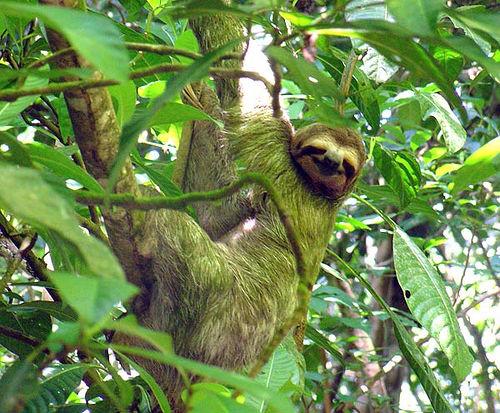
...
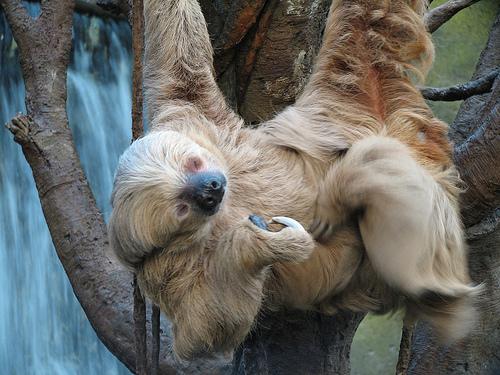
...
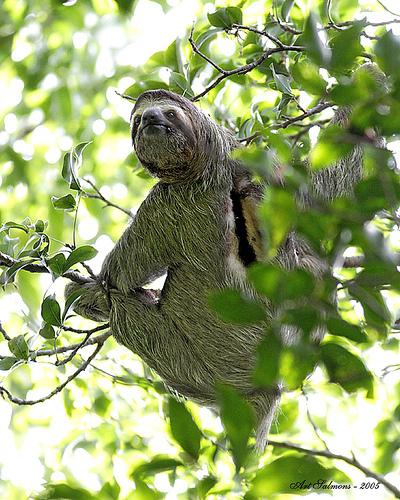
...
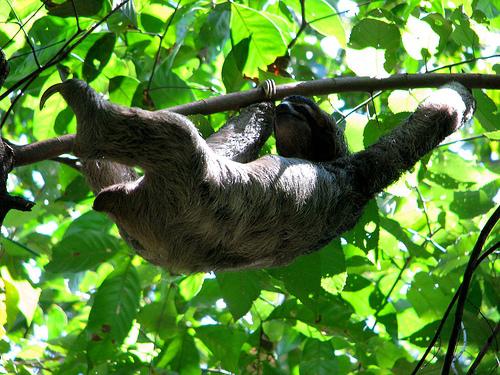
...
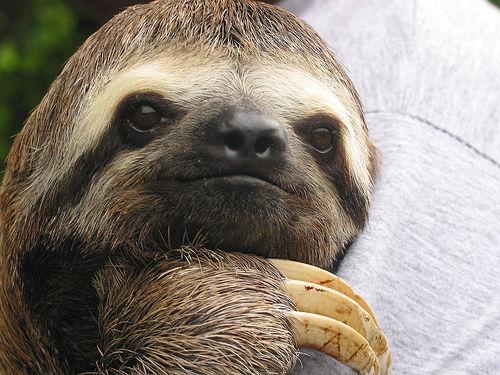
Source:
The body length of 50-64 cm and weigh 4-7 kg. The front legs are longer than the back. On the fingers (of 2-3) strong sickle claws. The neck is very mobile, allowing rotation of the head even at 270 °. Zubov 18. Unlike other mammals, sloths have cervical vertebrae 6-9 and 14-24 pairs of ribs. Wool long grayish-brown in color, often with a greenish tint due to developing it vodorosley.Iz senses are well developed sight and smell worse than a rumor.
Sloths feed almost exclusively on arboreal leaves, although they may occasionally eat insects and small lizards. Leaves are difficult to digest and have a very low calorie content and nutritional value. For digestion leaves sloths use symbiotic bacteria living in their gut. Digestion takes about a month. In well-fed sloth 2/3 of body weight can occur in the food in the stomach.
Sloths are so slow that their wool often live butterfly ognёvka. In addition, the coat of many species of sloths live blue-green algae (bacteria capable of photosynthesis), giving sloths a greenish color that makes them invisible, and are an additional source of food.
Sloths can withstand a fall from a great height and severe injuries. Small lenivchiki not cling to trees, and for the mother's hair. Sometimes they fall, and at the same time can be lost, because his mother could not climb down over its cub.
The slothful man can neither defend themselves or escape from a predator. Nevertheless, sloths are very numerous, thanks to color and slow movements, making them virtually invisible. In some areas, sloths make up 2/3 of the biomass of mammals. Only one species of the five sloth collared, declared endangered.
Sloths are found in Central and South America. In the past they were carried out in North America, but were almost immediately destroyed after the arrival of humans.
Ancestors were megatherium sloths, huge animal the size of an elephant or a bull, eat like modern sloths, the leaves of trees. Megatherium extinct 10-12 thousand. Years ago and were contemporaries of primitive people. Moreover, at least one kind of giant sloth used is probably as domestic animal meat.

...

...

...

...

...

...

...

...

...

Source:
